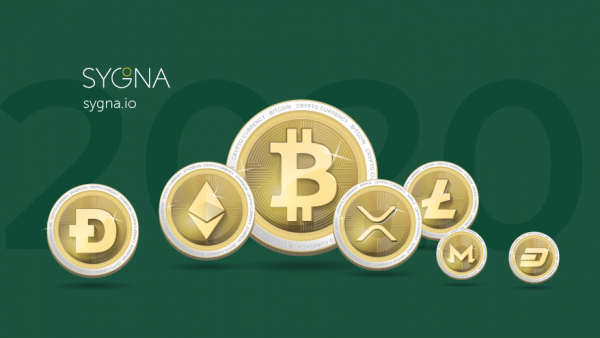In late September 2021, the US commodities federal regulator the CFTC charged 14 crypto companies for a myriad of transgressions, including failing to register as futures commission merchants (FCM), making false claims about their registration, or making misleading statements about their respective cryptocurrencies.
This move is one of several that have arisen in recent months aimed at crypto players. Actions have recently been taken against several major players including Kraken and Tether. These legal actions may signal a larger shift in the US government’s approach towards regulating cryptocurrencies, and will undoubtedly have wider consequences. Here’s what you need to know.
Introduction
The US Commodity Futures Trading Commission (CFTC) pressed charges against 14 crypto companies on September 29, 2021. This was the beginning of a barrage of actions that have seen various cryptocurrencies, including the popular stablecoin Tether, fall under federal scrutiny.
The CFTC said 12 of the 14 failed companies targeted had failed to register as futures commission merchants (FCM), and the other two allegedly lied about their registration status.
According to a press release issued on Sept. 29, 12 of the options dealers were located in New York. All 12 are relatively unknown and are being accused of failing to register with the CFTC. Two other companies, Climax Capital FX and Digitalexchange24.com, are located in Texas and Arkansas respectively. The two companies are accused of “making false and misleading claims of having CFTC registration and National Futures Association (NFA) membership”.
Who are the CFTC and what do they do?
The Commodity Futures Trading Commission (CFTC) is an independent federal agency responsible for overseeing the U.S. derivatives market — including futures contracts, options, and swaps.
The Commodity Futures Trading Commission Act established the CFTC in 1974, with the purpose to include promoting competition and efficient markets and protecting investors from manipulation, abusive trade practices, and fraud. Until recently the CFTC has taken a hands-off approach to cryptocurrencies.
Other Recent CFTC Actions
September’s decision to press charges represents several or a myriad of crackdowns aimed at cryptocurrencies in recent months. Others notable, high-profile cases include those against:
- The Hong Kong based stablecoin Tether
- The British Virgin Island-based Bitfinex
- The US-based cryptocurrency exchange Kraken
Bitfinex and Tether
In the most notable of recent cases, the stablecoin Tether was fined USD 41 million for allegedly making misleading statements between June 2016 and February 2019.
Touted as a less volatile alternative to traditional cryptocurrencies, stablecoins like Tether are, at least on paper, backed up by tangible assets. The CFTC found in this case that Tether’s claim that its popular stablecoin was backed by USD, accrued by incurring corporate debt, was false or misleading.
The CFTC similarly fined Bitfinex USD 1.5 million for not preventing US customers from illegally engaging in retail commodity transactions on the exchange.
Kraken
A CFTC press release announced that Kraken, an exchange, was fined USD 1.25 million under similar circumstances. The CFTC alleges that Kraken was operating without a license, a claim that Kraken has neither confirmed nor denied.
Part of a Trend?
The CFTC’s decision to charge the above crypto companies is part of a larger, recent crackdown on cryptocurrencies at US federal level. Indeed, the Securities and Exchange Commission and the US Treasury Department have taken comparable actions. The treasury is presently debating launching an FSOC investigation into stablecoins, and the SEC have begun investigating the likes of Circle Financial and started issuing warnings to other crypto players this year, with new chairman Gary Gensler increasingly vocal about sectors like stablecoins, DeFi and NFTs.
What are the implications for crypto?
Investors, crypto-enthusiasts, and industry actors can breathe a temporary sigh of relief. The US Fed has recently expressed that it does not harbor any intention towards banning cryptocurrency. Indeed, the vast majority of present government actions are ostensibly aimed at protecting the consumer from misleading business practices. Thus far they are targeting industry actors that are engaging in misleading practices — either failing to register or making misleading claims — and are laying out frameworks that may in fact empower consumer confidence in cryptocurrency.
One of cryptocurrency’s strongest selling points (a feature that continues to attract regulatory scrutiny) remains its ability to operate outside the existing financial system. Despite this, many people would argue that protecting the mainstream financial system is not necessarily a bad thing.
In sum, increased regulation, established by the either CFTC or US Treasury Department simply demonstrates one fact with certainty — the growing influence, and thus adoption, of cryptocurrency.
Conclusion
The CFTC’s decision to pursue legal actions against numerous cryptocurrency companies may be the inevitable result of the booming popularity of cryptocurrency. Conversely, increased regulation may improve consumer confidence and may hasten the mass adoption and acceptance of crypto. In the end, only one thing is certain, for better or worse, this will not be the last time we see the words “CFTC” and “cryptocurrency” in the same headline.


